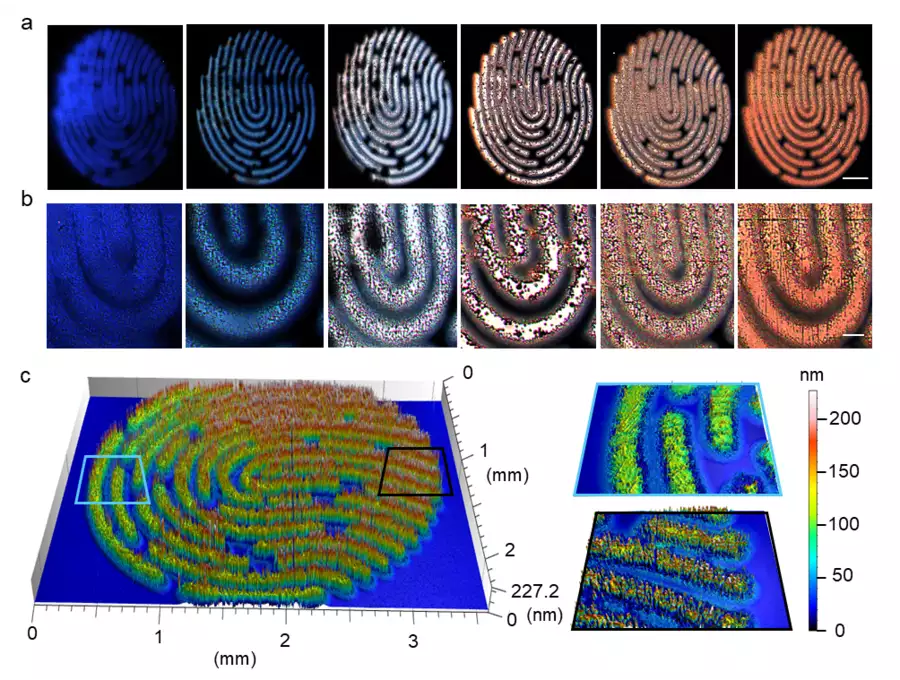POTSDAM, Germany, June 13, 2023 — The counterfeiting of electronics, certificates, and medicines causes billions of dollars in economic losses worldwide every year. According to current estimates from the World Health Organization (WHO), counterfeit medicines account for €73 billion ($78 billion) in annual sales. Half of counterfeit medicines are obtained through unauthorized online mail-order companies, according to the organization.

Six different artificial fingerprint patterns provided with different properties to visualize individual fluorescence and topography. The synthesis parameters were derived from the nanofilm library. Courtesy of Felix Löffler/Max Planck Institute of Colloids and Interfaces.
To combat this, medicine packaging is marked with security features across the EU. Current counterfeit detection materials, such as those used in fluorescent holograms, typically contain toxic inorganic components. In addition, most of these techniques can be copied within 18 months of decoding the fluorescent compound.
Researchers at the Max Planck Institute of Colloids and Interfaces have now developed a method that makes it possible to produce unique fluorescent patterns quickly, at low cost, and in a way that ensures the patterns cannot be copied. The team’s environmentally friendly approach to these unclonable nanopatterns uses laser-based nanoprinting technology and simple sugars.
First, according to the researchers, a thin sugar film consisting of monosaccharides is bombarded with a laser. In this flash synthesis, the sugar caramelizes in milliseconds, and at the same time the laser prints random “caramel patterns” on a desired surface. These patterns are unique and fluoresce in different colors under the scanner. Further, according to team lead Felix Löffler, each sugar pattern has a unique topography. “Depending on the laser parameters and additives, we get unique color gradations of red, green, or blue,” he said.

In experiments, the researchers created a nanofilm library of about 2000 distinct nanopatterns. The researchers used both scanning methods — fluorescence scanning and topography scanning — to read the microstructure of the unique sugar patterns quickly and independently. The combination of both methods improves the protection against counterfeiting, the researchers said.
“In addition, with our method we can generate up to 10 to the power of 63,000 different variants on 1 mm2. For comparison, the number of atoms in the universe is about 10 to the power of 89,” Löffler said.
The research was published in Nature Nanotechnology (www.doi.org/10.1038/s41565-023-01405-3).